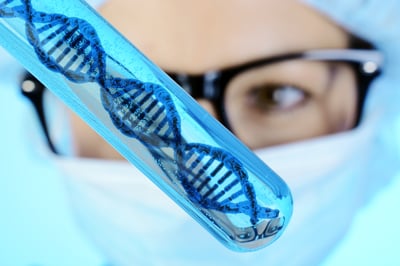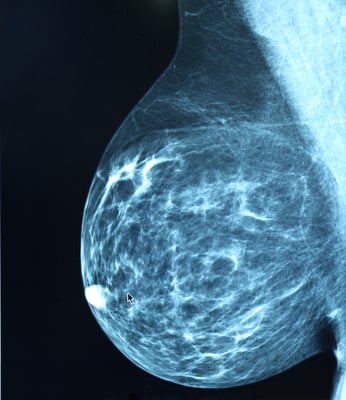FORCE's eXamining the Relevance of Articles for You (XRAY) program looks behind the headlines of cancer news to help you understand what the research means for you.
XRAY is a reliable source of hereditary cancer research-related news and information.
Learn more about the XRAY program
All XRAYs
Relevance: Medium-High


Strength of Science: Medium


Study : Take your time, follow your heart: strategies for communication about family planning
Relevance: Medium-High


Strength of Science: Medium


Most relevant for: Young high risk women
When a woman is newly diagnosed with a BRCA mutation, she faces many risk management decisions. Although many of these decisions impact family planning, little guidance is available on how to communicate this information. This study examines female previvors’ advice on effective strategies for discussing family planning decisions. (03/28/18)
Read More
Update : FDA approves at-home test kits for inherited cancer: how useful are they?
Most relevant for: People who are considering or have had direct-to-consumer testing through 23andMe
Genetic testing for health conditions (such as risk for cancer) typically requires a prescription from a doctor. Until recently, direct-to-consumer (DTC) genetic testing has focused on tests to learn your ancestry and find of unknown branches of family trees. A laboratory called 23andMe that provides direct-to-consumer genetic testing has been given FDA approval to report results for 3 mutations found in the BRCA1 and BRCA2 genes. The FDA statement provides details about this approval and warns people about the limitations of the 23andMe test. (03/19/18)
Read More
Relevance: Medium-High


Quality of Writing: Medium


Article : Insurance companies are more than curious about your genetic test results
Relevance: Medium-High


Quality of Writing: Medium


Most relevant for: People considering testing for an inherited gene mutation
An article on CBSNews.com addressed why insurance companies, particularly long-term insurance companies, might want to know which of their policy holders and potential policy holders have a gene that raises their risk for cancer. The article discusses genetic discrimination by insurance companies that provide long term care policies. Federal laws protect people with gene mutations from discrimination in health insurance. No such federal laws exist for life insurance, disability insurance or long term care. (3/13/18)
Read More
Relevance: Low


Strength of Science: Medium


Research Timeline: Animal Studies


Study : Is asparagus linked to breast cancer metastasis?
Relevance: Low


Strength of Science: Medium


Research Timeline: Animal Studies


Most relevant for: People diagnosed with breast cancer
A study published in the journal Nature shows that asparagine, a protein building block that takes its name from asparagus, promotes the spread of breast cancer in mice. The study by cancer experts from Britain, Canada and the U.S. investigated whether limiting the levels of asparagine in mice could reduce tumor metastasis. (3/2/18)
Read More
Relevance: Medium-Low


Strength of Science: Medium-Low


Research Timeline: Animal Studies


Study : Cancer “vaccine” injected directly into tumors works in mice
Relevance: Medium-Low


Strength of Science: Medium-Low


Research Timeline: Animal Studies


Most relevant for: People with advanced cancers
Immunotherapy is treatment that uses the immune system to fight cancer. Still in its infancy, it is a promising therapy that is changing how certain cancers are treated. A new study reports that tumors in lab mice were eliminated when they were injected with two immune system-enhancing agents. This new approach is called in situ (at the original site) vaccination because the injections are given directly into the tumors. It worked on several different types of mouse tumors, including lymphomas and breast tumors. This approach may be safer than conventional immunotherapy because it uses very low doses of the agents and it does not require tumors to have particular markers. (02/23/18)
Read More
Study : Survival and mutation status in breast cancer patients under age 40
Most relevant for: Young breast cancer patients
Studies have found conflicting rates of survival for BRCA mutation carriers who develop breast cancer, reporting better, worse and similar outcomes compared to patients with sporadic breast cancer. New results of the large Prospective Outcomes in Sporadic versus Hereditary (POSH) breast cancer study found no difference in survival rates between the two groups. The study also concluded that among young triple-negative breast cancer patients during the first 2 years after diagnosis, BRCA mutation carriers had an initial survival advantage compared to women without a BRCA mutation. (02/15/18)

Article : Oncoplastic breast-conserving surgery with BioZorb® technology
Most relevant for: Women undergoing lumpectomy for breast cancer
The January 22, 2018 issue of The Columbian included an interview with Dr. Anne Peled in its online report, “Breast cancer surgeon diagnosed with breast cancer advocates oncoplastic surgery.” Dr. Peled is a 37-year-old breast cancer surgeon and plastic surgeon from California who was recently diagnosed with breast cancer. She underwent oncoplastic lumpectomy—a single surgery that removes the tumor and rearranges the remaining tissue to eliminate any resulting breast deformity. Peled’s procedure included a relatively new technology that she uses for her own patients: an implanted BioZorb® marker, a small device that improves precise targeting of radiation therapy and cosmetic outcome. (2/8/18)
Update 08/02/2024
On May 22, 2024, the FDA issued a safety notification on BioZorb Markers. This is due to reports of people having adverse reactions to BioZorb Markers placed in breast tissue.
These included infection, fluid buildup, movement of the marker, either through the skin or to another location in the breast, discomfort due to feeling the device in the breast and rash. This safety alert does not call for removal of BioZorb Markers. People should report any reactions to BioZorb to their doctor and the FDA. You can read more about this safety notification here.
Read More
Relevance: High


Strength of Science: High


Research Timeline: Post Approval


Study : Should biannual MRIs replace annual mammograms in high-risk women?
Relevance: High


Strength of Science: High


Research Timeline: Post Approval


Most relevant for: Women at increased risk for breast cancer due to an inherited mutation
The risk of breast cancer is exceptionally high in women who have a personal or family history of breast cancer or who carry a mutation in BRCA or certain other genes. More frequent screening is one strategy for early detection of breast cancer for these women. Study results presented at the 2017 San Antonio Breast Cancer Symposium suggest that MRI screening every 6 months may be more effective than the currently recommended annual breast MRI and annual mammogram in detecting early stage breast cancers-which are more treatable-in high-risk women. (2/1/18)
Read More
Relevance: Medium-High


Strength of Science: Medium-High


Research Timeline: Post Approval


Study : What is the risk of breast cancer recurrence after nipple-sparing mastectomy?
Relevance: Medium-High


Strength of Science: Medium-High


Research Timeline: Post Approval


Most relevant for: Breast cancer patients who are considering or have had a nipple sparing mastectomy
Nipple-sparing mastectomy (NSM) offers better cosmetic results for women who have immediate breast reconstruction (at the same time as their mastectomy). Over the past decade, NSM has gained popularity among surgeons and patients. Studies show that women who keep their own nipples have higher rates of satisfaction and psychological well-being after mastectomy and reconstruction compared to women who lose their nipples. However, little data exists on the long-term risk of recurrence following NSM. New research adds to a growing body of evidence suggesting that risk of recurrence is low after NSM in carefully selected patients with breast cancer. (1/25/18)
Read More
Relevance: Medium


Quality of Writing: High


Research Timeline: Human Research


Article : The buzz around MonaLisa Touch
Relevance: Medium


Quality of Writing: High


Research Timeline: Human Research


Most relevant for: Women experiencing vaginal symptoms from menopause
THIS INFORMATION HAS BEEN UPDATED. The FDA issued an alert in July, 2018 noting that laser or radiofrequency devices that have received FDA clearance are ONLY cleared for treating abnormal or pre-cancerous cervical or vaginal tissue and genital warts and have NOT been approved for vaginal rejuvenation. There are currently clinical trials enrolling women to study whether laser and radiofrequency devices can improve vaginal atrophy and other menopausal symptoms.
For many young breast cancer survivors and high-risk women, the side effects from early menopause after treatment and surgery can negatively impact their personal lives. This XRAYS looks at one of the many recent media articles on a laser procedure called MonaLisa Touch. The article, "Is Laser Treatment for Vaginal Atrophy Safe?" was published online in 2017 by FOX News and written by Dr. Manny Alvarez. XRAYS will discuss what this laser procedure actually is and how it may impact a young breast cancer patient’s life after treatment. (1/19/18)
Read More